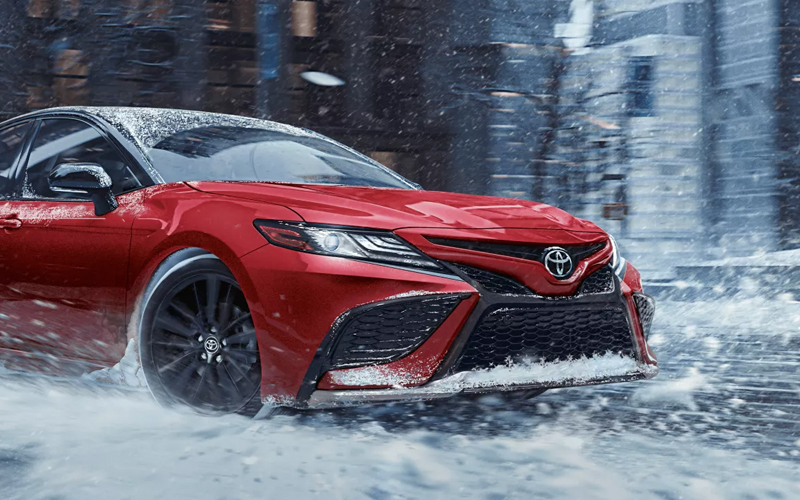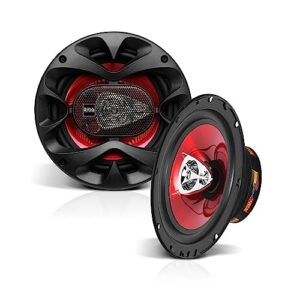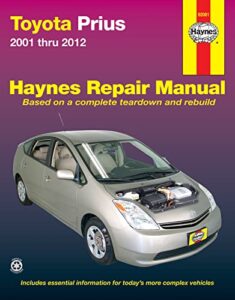As an Amazon Associate, I earn from qualifying purchases
Have you ever wondered just how fast a Toyota Camry can go? Whether you’re thinking about buying one or simply curious about its performance, knowing its top speed and acceleration can help you understand what this popular car is really capable of.
You’ll get clear, straightforward answers about the Camry’s speed, what affects it, and how it compares to other cars in its class. Keep reading—you might be surprised by what you discover about your next ride.

Credit: www.genemessertoyota.com
Toyota Camry Models And Engine Options
The Toyota Camry offers various models with different engine options. Each engine type affects the car’s speed and fuel efficiency. This section explains the main engine choices and how they impact performance. Understanding these differences helps in choosing the right Camry model.
Overview Of Engine Variants
The Camry comes with three main engine types. First is the 2.5-liter four-cylinder engine. It balances power and fuel economy. Second, the 3.5-liter V6 engine offers stronger acceleration. It suits drivers who want more speed. Third, a hybrid engine combines gas and electric power. This option focuses on saving fuel and reducing emissions.
Performance Differences Between Models
The 2.5-liter engine produces around 203 horsepower. It provides smooth, steady driving for daily use. The V6 engine delivers about 301 horsepower. This makes the Camry faster and more responsive. The hybrid model varies but often matches the four-cylinder’s power. It excels in fuel savings rather than speed. Each model suits different needs and driving styles.

Credit: www.coxtoyota.com
Top Speed Capabilities
The top speed capabilities of the Toyota Camry show how well it performs on the road. The car balances power and control. It offers a smooth driving experience at various speeds. Understanding its maximum speed and how speed limits affect it helps drivers know what to expect.
The Camry suits daily driving and highway cruising. It delivers enough speed for safe passing and merging. Let’s explore the details below.
Maximum Speed Of Standard Models
Most standard Toyota Camry models reach a top speed near 135 mph. This speed comes from the engine’s power and design. The V6 engine versions often hit this top speed. Four-cylinder models have slightly lower maximum speeds, around 120 mph. These speeds provide strong performance for most drivers.
The car maintains stability and control even at high speeds. Its aerodynamics and suspension help keep the ride safe and comfortable. Toyota prioritizes a balance of speed and safety in the Camry’s design.
Speed Limits On Different Terrains
Speed limits vary depending on the road type and location. On highways, speed limits usually range from 55 to 75 mph. The Camry can comfortably reach and sustain these speeds. City roads have lower limits, often 25 to 45 mph. The car performs well within these limits, offering good handling in traffic.
Off-road or rough terrain is not ideal for high speeds. The Camry is designed mainly for paved roads. Drivers should reduce speed on uneven surfaces for safety. The car’s suspension helps absorb bumps but does not support very high speeds off-road.
Acceleration And 0-60 Mph Times
The Toyota Camry offers a smooth and reliable acceleration experience. Understanding its 0-60 MPH times helps buyers know how quickly it can merge or overtake on highways. Different Camry models deliver varied acceleration speeds, suited for daily drives or sportier needs.
Acceleration In Base Models
The base Toyota Camry comes with a four-cylinder engine. It reaches 0-60 MPH in about 8 seconds. This speed is enough for city driving and highway cruising. The acceleration feels steady and controlled, not too fast or slow. It suits drivers who want a comfortable and efficient ride.
Performance In Sportier Versions
Sportier Camry models feature a V6 engine or hybrid setup. These versions can accelerate from 0 to 60 MPH in around 5.5 to 6 seconds. The power boost gives a more thrilling driving experience. It responds faster to throttle input and handles quick maneuvers well. Ideal for drivers who enjoy a livelier ride without sacrificing comfort.
Factors Influencing Speed
The speed of a Toyota Camry depends on several key factors. These elements work together to affect how fast the car can go. Understanding these helps explain why speeds vary between models.
Each factor influences the engine’s power and the car’s overall performance. Let’s explore the main factors that affect the speed of a Toyota Camry.
Impact Of Vehicle Weight
Heavier cars need more power to speed up. The Toyota Camry’s weight changes with different trims and features. A heavier Camry may accelerate slower. Less weight allows the car to move faster with the same engine power. Weight also affects fuel efficiency and handling.
Effect Of Aerodynamics
Air resistance slows down a moving vehicle. The Camry’s shape is designed to cut through air smoothly. Better aerodynamics reduce drag and help increase speed. A boxy or bulky design creates more wind resistance. This limits top speed and uses more fuel.
Role Of Transmission Types
The transmission controls how power reaches the wheels. Toyota Camry offers automatic and manual transmissions. Automatic transmissions shift gears smoothly for easy driving. Manual transmissions allow drivers to control gear changes. The type of transmission affects acceleration and top speed.
Comparing Camry Speed To Competitors
Comparing the speed of the Toyota Camry to other cars helps buyers choose the right sedan. Speed matters for many drivers who want smooth and quick rides. The Camry offers solid performance, but how does it match up against other popular sedans? This section breaks down the differences in speed and shows where the Camry shines.
Speed Comparison With Similar Sedans
The Toyota Camry has a top speed of about 135 mph. This is close to many competitors in the midsize sedan class. For example, the Honda Accord can reach speeds up to 130 mph. The Nissan Altima tops out near 130 mph as well.
The Mazda6 has a slightly lower top speed around 125 mph. The Hyundai Sonata matches the Camry’s speed at 135 mph. These numbers show the Camry holds its own among popular sedans.
How Camry Stands Out
The Camry does more than just match speed numbers. It balances speed with fuel efficiency and comfort. The engine options give drivers choices between power and economy. The V6 model boosts acceleration, helping it reach higher speeds quickly.
Its smooth handling and stable ride improve control at high speeds. The Camry also offers advanced safety features to keep drivers secure. This blend of speed, power, and safety makes the Camry a well-rounded option.
Real-world Driving Speed Considerations
Understanding the real-world driving speed of a Toyota Camry goes beyond just numbers. The car’s top speed and acceleration are important, but actual driving speed depends on many factors. These factors shape how fast you can safely and legally drive your Camry on the road.
Influence Of Traffic And Road Conditions
Traffic plays a big role in how fast your Camry can go. Heavy traffic slows down all vehicles, including a Camry. Stop-and-go traffic limits the car’s speed to just a few miles per hour at times.
Road conditions also affect driving speed. Wet, icy, or uneven roads force drivers to slow down. Sharp turns or narrow lanes require careful driving, reducing speed further. A smooth, clear highway allows the Camry to reach higher speeds safely.
Legal Speed Restrictions
Speed limits set by law control how fast you should drive. These limits vary by area and road type. City streets often have lower speed limits, usually around 25 to 35 mph. Highways allow faster speeds, often between 55 and 75 mph.
Following speed limits helps avoid tickets and keeps everyone safe. The Toyota Camry’s speed should match these legal limits. Driving too fast is risky and illegal, no matter how powerful the car is.
Tips To Enhance Camry’s Performance
Enhancing the performance of your Toyota Camry improves driving enjoyment and vehicle longevity. Simple steps can help your Camry reach its best speed and efficiency. Regular care and smart upgrades make a noticeable difference.
Maintenance For Optimal Speed
Keeping your Camry in good shape is key to better speed. Change the oil regularly to keep the engine smooth. Check the air filter often; a clean filter helps the engine breathe. Proper tire pressure improves grip and fuel efficiency. Regularly inspect spark plugs for better ignition. Follow the service schedule for parts like belts and fluids. Well-maintained brakes and suspension also help with control at higher speeds.
Aftermarket Upgrades
Some upgrades can boost your Camry’s performance safely. Performance air intakes increase airflow to the engine. Upgrading the exhaust system can improve power and sound. Consider better tires with good grip for faster acceleration. Suspension kits help maintain stability at higher speeds. Performance chips or tuners adjust engine settings for more power. Always choose parts made for your Camry model to avoid problems.

Credit: www.youtube.com
Frequently Asked Questions
How Fast Can A Toyota Camry Go?
A Toyota Camry can reach speeds up to 135 mph, depending on the model and engine type.
What Affects The Speed Of A Toyota Camry?
Engine power, weight, and aerodynamics mainly affect how fast a Toyota Camry can go.
Does The Toyota Camry Speed Vary By Year?
Yes, newer Camry models usually have faster top speeds due to better engines and technology.
How Quickly Does A Toyota Camry Accelerate?
Most Camrys can accelerate from 0 to 60 mph in about 7 seconds or less.
Is The Toyota Camry Good For Highway Driving?
Yes, the Camry’s speed and stability make it suitable and safe for highways.
Can A Toyota Camry Compete With Sports Cars In Speed?
No, Camrys are designed for comfort and efficiency, not for matching sports car speeds.
Conclusion
The Toyota Camry offers a good balance of speed and comfort. It can reach speeds that suit daily driving and highway travel. Different models have slightly different top speeds, but all focus on reliable performance. The car is not built for racing but for smooth and safe rides.
Choosing a Camry means getting steady power with fuel efficiency. Overall, it meets the needs of most drivers well. Speed is just one part of its appeal. It remains a popular choice for many around the world.
As an Amazon Associate, I earn from qualifying purchases


